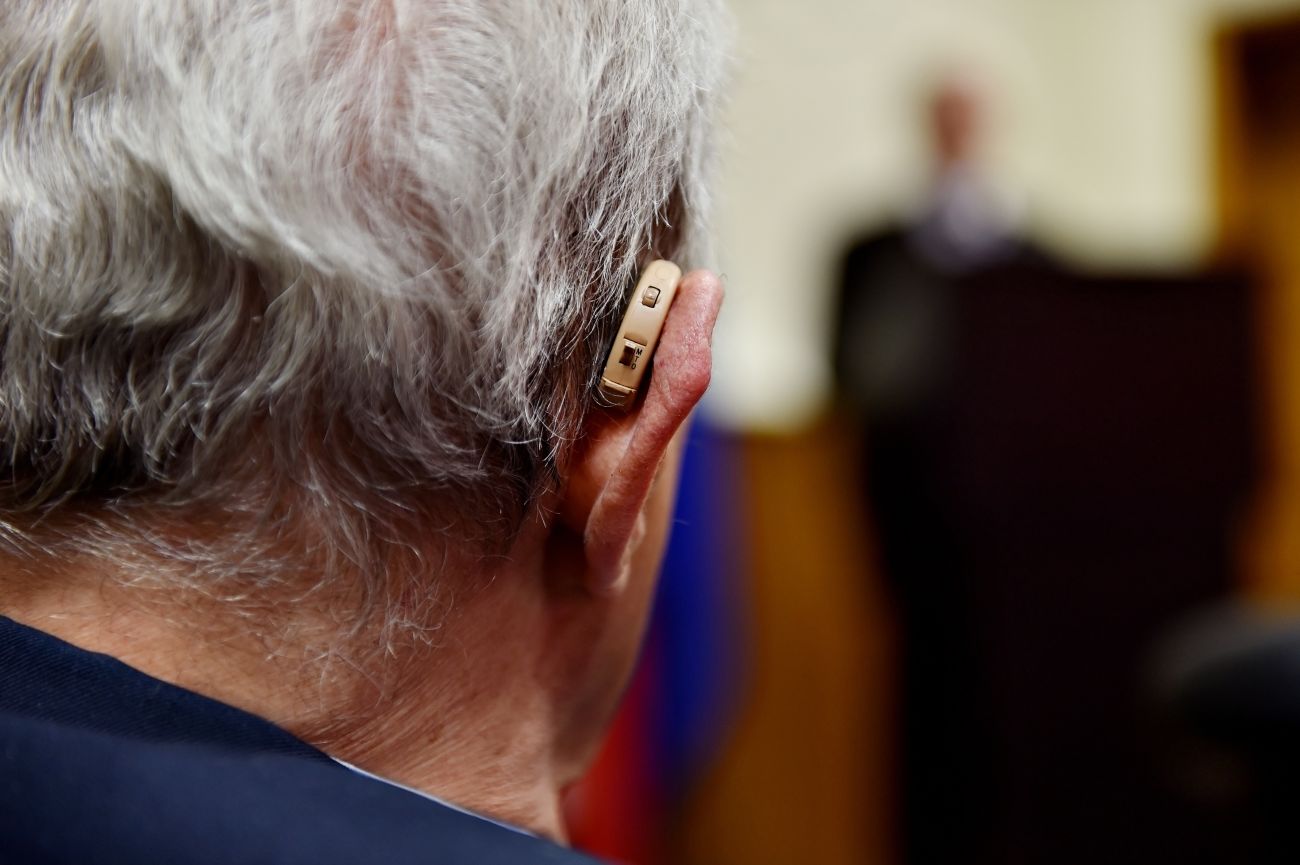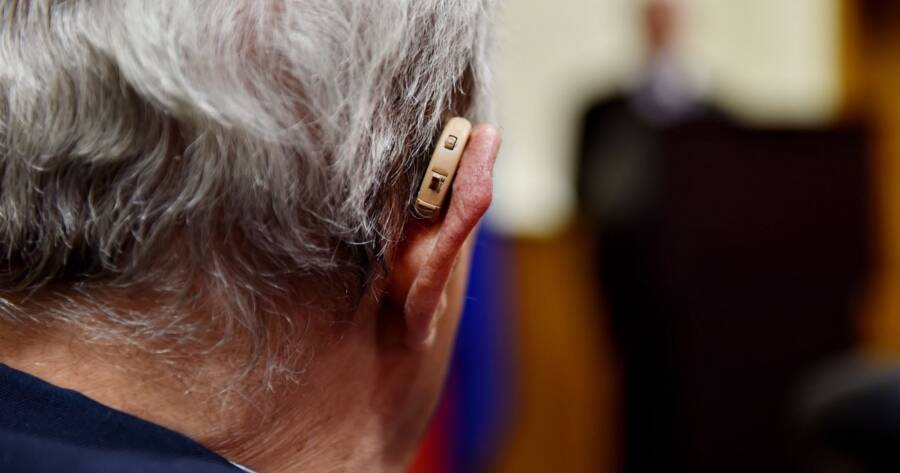Hearing ranks as one of the topmost senses for most people. Honking horns, loud yells, or angry growls warn of potential danger, and euphonious birdsong early in the morning lends peace to your oncoming day. Needless to say, the chattering of other people also looms large in the routine of daily life.
Many people have encountered presbycusis, a gradual sensorineural decline in hearing that frequently accompanies aging. Approximately a quarter of American adults between 55 and 64 years old suffer from this condition. Nearly half of all adults in the United States will slam into this problem after the age of 65.
Not everyone may become consciously aware of a gradual loss of hearing as the years advance. Any one of the following seven signs of hearing loss calls for visiting an audiologist for tests to confirm a potential problem. Sudden hearing loss in either ear is a medical emergency that demands immediate attention from a physician.
1. Words Retreat from Comprehension
Increasing difficulty with understanding other people, especially in noisy environments such as crowded shopping malls or loud parties, may reveal a declining ability to distinguish speech from noise. It’s common for people to respond to this problem by asking for speakers to repeat themselves, to speak more loudly, or to slow down. Television and radio speech may also seem to fade into unintelligible gibberish. Conversations in general seem to lose their color and vibrancy.
2. Social Situations turn Awkward and Tiring
Without quite realizing why, a person suffering from creeping hearing loss may increasingly retreat from social situations. They somehow seem too difficult, often leading to awkward moments when a critical point is missed, or a joke is misheard. It begins to seem as if plunging into even a crowd of longtime friends or close business associates results in nothing but inexplicable, growing social isolation.
3. Annoying Mumbling Erupts Everywhere
Other people may seem to slowly acquire a bad habit of failing to clearly enunciate their words. Consonants disappear into the mist as vowels rudely strut to the fore. This perception often indicates a loss of the ability to clearly hear higher-frequency or softer sounds such as sibilants. Similarly, snakes lose their hisses, clock alarms ditch their high-pitched beeps, and machine clicks such as those from automobile turn signals seemingly disappear.
4. Tinnitus Rattles out its Meaningless Noise
Unexplained sounds such as buzzing, ringing, or clicking in one or both of your ears could very well indicate a significant medical problem that requires professional attention. Long-term exposure to loud sounds such as unmuffled gunshots, blaring rock-music concerts, and clanging industrial machinery can produce persistent, sometimes permanent tinnitus.
Sinus and ear infections, hormonal changes in women, and common reactions to many medications can result in temporary or persistent tinnitus. More rarely, tinnitus may reflect a serious medical problem such as heart disease or a brain tumor.
5. Children’s Voices Flee Comprehension
Females and children generally have higher, softer voices than adult males, which means communication with children and grandchildren may be one of the first victims of encroaching hearing loss. For a devoted parent or grandparent, this can be devastating. A spouse may begin to drift away from a significant other because ordinary conversations have become oddly difficult. A similar problem may arise with failing to understand strongly accented voices as their tonal edges seem to gradually disappear.
6. Volume Controls on Audio Devices See Unusual Upward Activity
Routine annoyance with strangely soft audio levels from televisions, smartphones, and other audio devices may instead constitute a barely noticed symptom of gradual hearing loss. A growing habit of cranking up the sound to unusually high levels often signifies that it’s time to seek professional testing for hearing problems.
7. Sounds Lose their Richness
Regardless of their volume or nature, sounds from all sources seem to grow muffled and flat. Birdsong becomes simpler and less nuanced, and human voices seem to abandon their ordinary tonal ranges. Long-loved musical performances and songs grow dull and uninteresting. Even ordinary noises like hammering from construction projects and the roar of motor vehicles seem to devolve into dull cartoon versions of their former selves. Such an evolution from complexity into lifeless simplicity is oddly easy to overlook if it happens slowly enough.
Dealing with Hearing Loss
Visiting an audiologist is usually the first response to possible hearing loss. If necessary, an otolaryngologist — an ear, nose, and throat specialist — can conduct a thorough examination to uncover underlying medical issues. Treatment might include simple removal of excessive earwax, antibiotics for a sinus infection, or even small, unobtrusive hearing aids that can reclaim much of your lost sound. Only your medical professional can provide comprehensive information on possible causes and treatments.
 roibu / Shutterstock
roibu / Shutterstock


